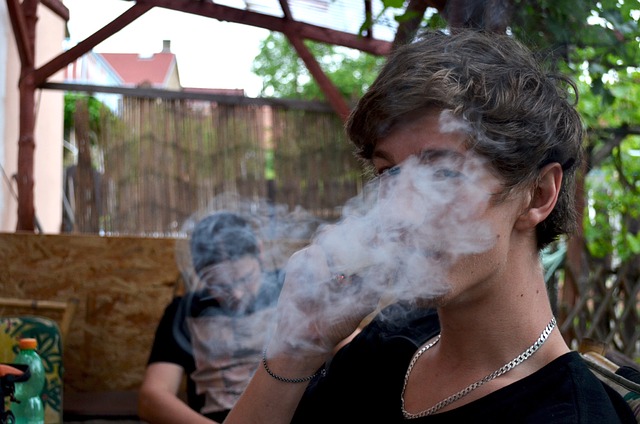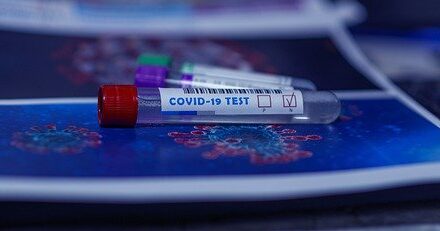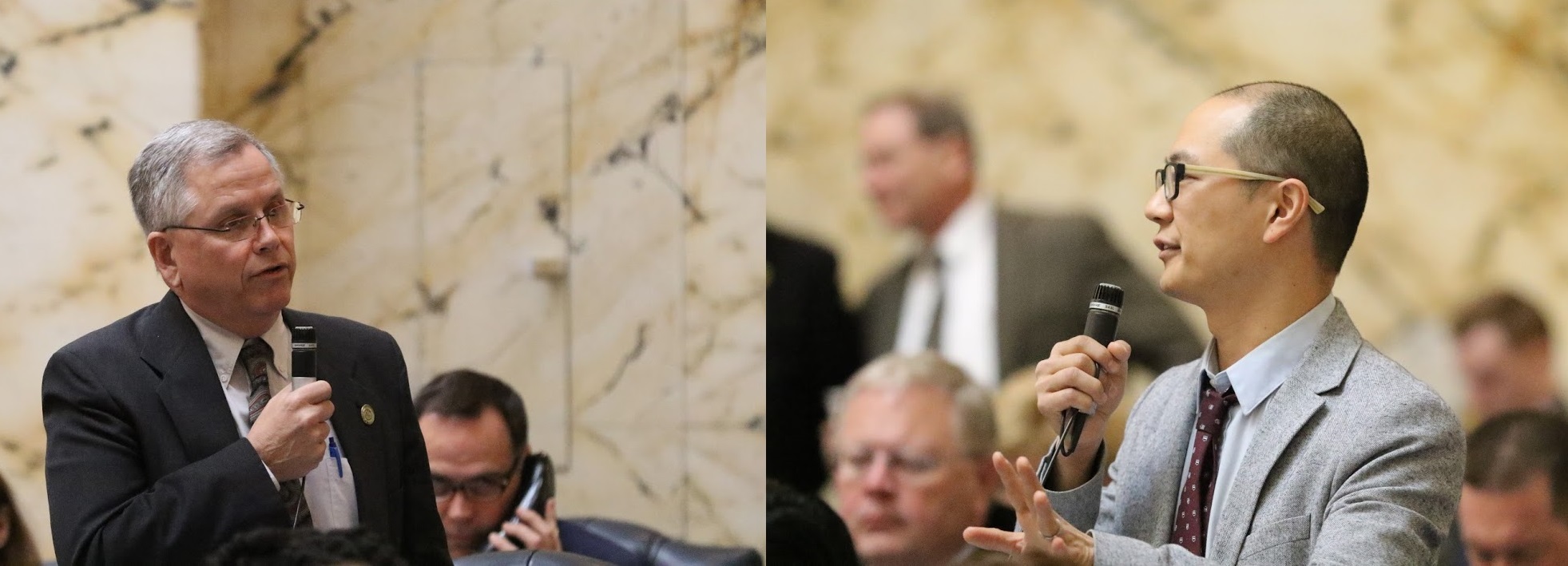By CATHERINE SCOTT
A bill essentially legalizing recreational use of cannabis in Maryland would be an important step toward addressing social equity and racial injustices, advocates said.
“This is the year we are talking about equity,” Del. Jazz Lewis, D-Prince George’s, sponsor of the bill, said at a Wednesday House Judiciary Committee hearing Capital News Service viewed. “And now is the time that we pass this bill.”
HB32 would legalize, tax, and regulate marijuana, referred to as cannabis in the bill, for adults 21 and older and also allow for expungement and release for individuals previously arrested or incarcerated.
Lewis argued at the hearing that the bill would take the production of cannabis off of the streets to ensure safer products, while simultaneously creating jobs, helping small businesses, and bringing in potentially hundreds of millions of dollars in annual tax revenue.
General fund and special fund revenues in Maryland would be expected to increase significantly in future fiscal years due to taxes, licensing fees, and civil penalty fines, according to a fiscal analysis. Exact dollar amounts, and the market for recreational cannabis, are unpredictable, according to the analysis.
Legalizing cannabis would increase the state’s expenditures significantly in the first year to establish regulatory and tax frameworks, as well as the cost of implementing the bill’s social equity provisions.
The Alcohol and Tobacco Commission alone would have to increase its spending by at least $1.9 million in the fiscal year 2022, which includes the costs of hiring more staff, consulting services, and overall operating expenses.
If passed, people 21 and over would be able to, “possess, consume, grow, use, process, manufacture, purchase, or transport up to the personal use amount of cannabis.”
The “personal use amount” is defined in the bill as up to two ounces of cannabis, 15 grams of concentrated cannabis, cannabis products containing up to 1,500 milligrams of THC, or up to six cannabis plants.
Having more than the personal use amount could result in a civil offense for individuals with a maximum penalty of 16 hours of community service or a $250 fine.
Underage individuals could face a $100 fine or 6 hours of community service if caught with cannabis for a first offense.
The bill originated from an informal summer workgroup composed of legislators from the Black caucus who worked to create legislation to address racial injustices, according to Lewis.
Lewis also testified that there are three components that address social equity within his bill, including criminal justice reform, reinvestment in disadvantaged communities, and establishing standards to allow for inclusion in the state’s recreational cannabis industry.
Medical use of cannabis was legalized in the state in 2014, and in that same legislative session, possession of cannabis less than 10 grams was decriminalized and turned into a civil offense.
Despite these changes, Black people made up 96% of all marijuana-related arrests in Baltimore from 2015 until 2017, according to Lewis, and he argued that the laws, “only made marijuana legal for white consumption.”
Sixty-three percent of the revenue generated from the bill would go directly toward community reinvestment, including funding toward the state’s four historically Black colleges and universities, grants to organizations tackling social equity challenges, as well as funding toward startups for small businesses.
“We must ensure those most hurt from cannabis prohibition, benefit most from the new legal industry,” Lewis said.
Lewis’ bill works with what the bill describes as “social equity applicants” — who live in an area that meets certain criteria, including living in a “disproportionately impacted area” — in order to push further for an equitable industry.
Lewis’ push for inclusion in the bill includes reduced licensing fees for social equity applicants, as well as establishing an Office of Social Equity within the Alcohol and Tobacco Commission to, “promote diversity and inclusion in the industry and foster reparative justice.”
Ben Jealous, former president and CEO of the NAACP and former Maryland Democratic gubernatorial candidate, testified in support and argued that this bill is important in correcting history.
“It is rare to have the opportunity to right past wrongs and create an inclusive economy,” Jealous said. “Delegate Lewis’ bill really stands out amongst, frankly, all the bills that have been introduced in this country in its thoroughness to hit all of those.”
A former Baltimore City detective in the criminal investigations division drug enforcement section, Debbie Ramsey, looked to her experience to testify that an arrest does not end the trade of drugs, but it actually creates a “job opening” for another seller to make money.
“We need our police to focus on the greater threats to public safety: crimes against persons and crimes against property,” Ramsay said in support of the bill.
The Maryland Medical Cannabis Commission did not take a stance on the bill, but Executive Director William Tilburg told lawmakers the commission has some concerns about the bill.
Among them, Maryland would be the only state in the country to separately regulate medical and adult-use programs, an issue Tilburg testified would double the administrative costs for the state.
Those who testified against the bill cited general reasons for the safety of the community as their reason for opposition.
Dr. Amelia Arria, a professor at the University of Maryland’s School of Public Health, testified that young adults are the most likely to use cannabis, which puts them at risk for mental health problems, drug dependence, and lower academic achievement.
Arria argued that these are outcomes, “at odds with Maryland’s mission to educate and prepare our youth to succeed.”
An emergency department physician from Colorado, a state that had previously legalized recreational marijuana, Dr. Karen Randall, testified against the bill based on her experience and the risks it poses to the youth.
“It isn’t a matter if they’re going to get it, because they’re going to get it,” Randall said after testifying that throughout her most recent shift she saw three youths come to the emergency room due to issues related to marijuana.
Ragina Ali, a spokeswoman for AAA Mid-Atlantic, a traffic safety organization, testified marijuana should not be legalized until the state is prepared to handle the traffic safety issues that would follow.
After legalization in Washington, fatal car crashes involving drivers who had recently used cannabis doubled, according to Ali.
AAA also saw insurance claims increase in Colorado, Nevada, and Oregon following legalization in those states, according to Ali.
On Tuesday, New Jersey officially legalized cannabis for recreational use joining 14 other states plus Washington, D.C. — including Oregon, a state that recently decriminalized limited amounts of all drugs.
Similar bills to HB32 that attempted to legalize recreational marijuana have been introduced in both the Maryland House and Senate annually since at least 2017, but all have failed.
No date has been set yet for a committee vote on HB32.






There is a lack of Constitutional Authority to enact and enforce the CDS Act on WE THE PEOPLE of these United States. The Federal Government was never ordained with any authority under Article 1 Section 8 to regulate the behavior of people and to do so is an over reach. The State Government is ordained with the authority of Police Power, but the enforcement of Marijuana via the Uniform CDS Act does not fall into the realms of policeable power. There is no doubt that the entirety of the CDS Acts, both Federal and State, was actually the creation of UN Treaty Law, made into statutory law Federally and then illegally promulgated to the States via the bribe of Federal Funding. The creation of State Law thru an act of bribery via the Federal Government is reprehensible and an act of TREASON, as it gives the Federal Government control over a subject that was NOT ordained. The Marijuana Laws don’t even fit the CDS Act as marijuana isn’t physically addictive and has medical uses, which contradicts the CDS Act’s creation. Many a person’s life has been ruined by the enforcement of the CDS Act against WE THE PEOPLE in an illegal war against the people that neither the State or the Federal Government have any authority to do. When our government declares war against it’s own people, how in God’s name are we NOT supposed to think that this isn’t TREASON. Our government must stop warring against our people and the Constitutions that are supposed to constrain it, yet the government uses those documents as toilet paper to clean their soiled selves. It is about time that the TREASONOUS Government becomes law abiding again. I will remind everyone that Article 18 of the Declaration of Rights was supposed to prevent this Government from creating any law that attaints treason or felony to particular persons of Maryland since 1867. How many times has the Legislature violated Article 18? I am sick and tired of this. I am sick and tired of being warred against by my Government. I am sick and tired of watching my people warred against by my Government. This must end. Yet, you the traitor Government wants to try and convince little boys that they are really little girls and shutter our stores and businesses in the name of COVID-19, that 98.6% of people whom catch it survive. I love my Country and my State, but I hate my Government. Pass the damn Marijuana Legalization and automatically expunge ALL Marijuana Convictions. The people deserve a lawful alternative than to be forced to use Alcohol, a highly addictive substance that causes harmful behavior, for their wants of intoxication.